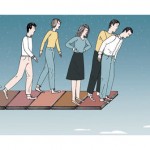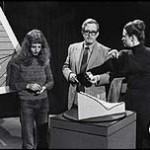‘Why doing a PhD is often a waste of time’
Monday, December 20th, 2010 The OU has longed claimed that it supports its learners. In an article subtitled ‘Why doing a PhD is often a waste of time’ the Economist argued that nowadays doctoral students and postdoc contract staff in general and across many countries, are treated as cheap, highly motivated and disposable labour and that this is in part due to the mismatch bwetween the aims of the institutions and those of the students. There is no evidence presented as to whether this can reasonably be applied to the OU. If you have postgrad or postdoc experiences of the OU which might be in a debate about how far the OU serves the wider society and the extent to which it is customer-focused, do let us know.
The OU has longed claimed that it supports its learners. In an article subtitled ‘Why doing a PhD is often a waste of time’ the Economist argued that nowadays doctoral students and postdoc contract staff in general and across many countries, are treated as cheap, highly motivated and disposable labour and that this is in part due to the mismatch bwetween the aims of the institutions and those of the students. There is no evidence presented as to whether this can reasonably be applied to the OU. If you have postgrad or postdoc experiences of the OU which might be in a debate about how far the OU serves the wider society and the extent to which it is customer-focused, do let us know.




